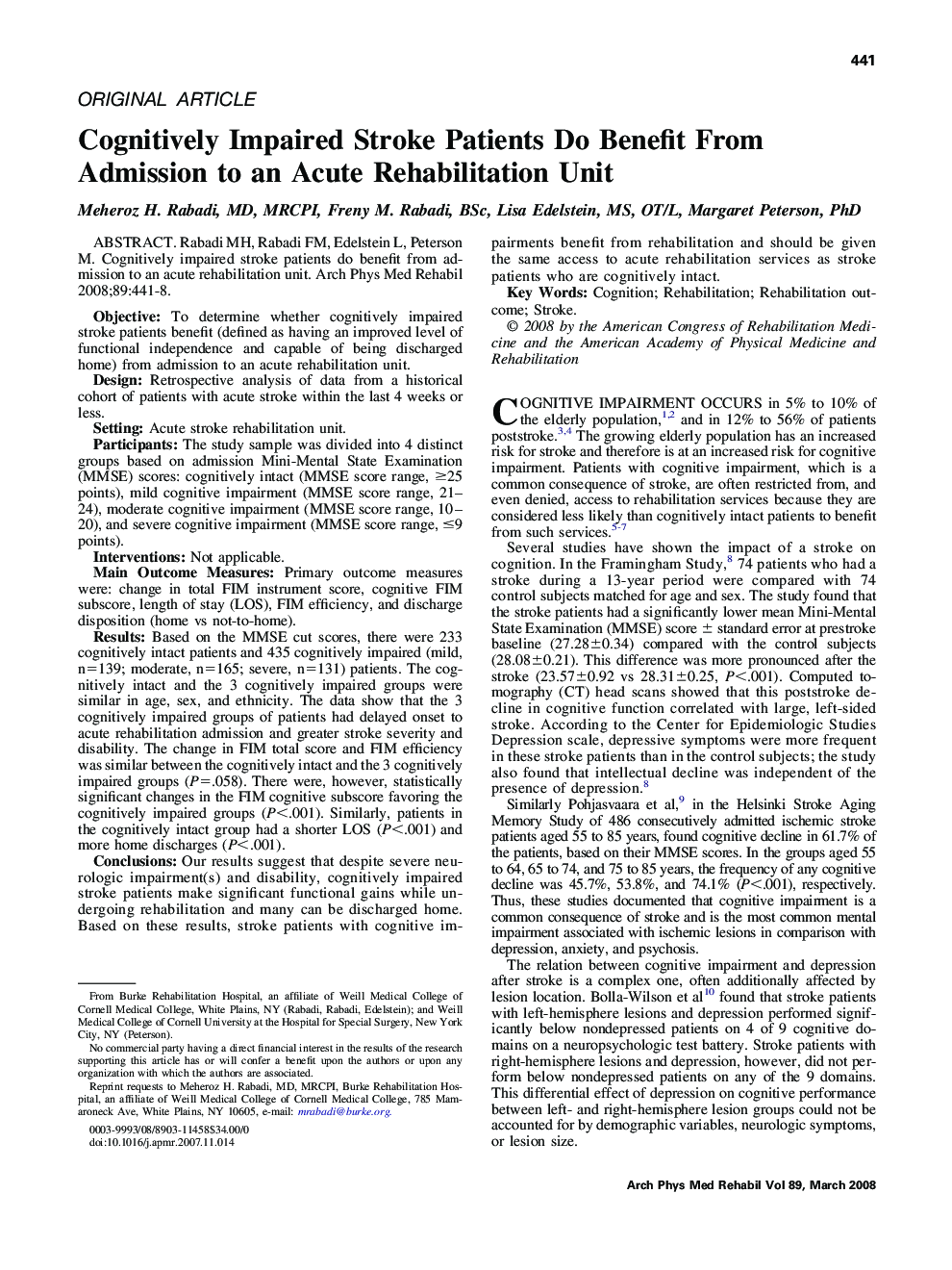| کد مقاله | کد نشریه | سال انتشار | مقاله انگلیسی | نسخه تمام متن |
|---|---|---|---|---|
| 3452216 | 1595781 | 2008 | 8 صفحه PDF | دانلود رایگان |

Rabadi MH, Rabadi FM, Edelstein L, Peterson M. Cognitively impaired stroke patients do benefit from admission to an acute rehabilitation unit.ObjectiveTo determine whether cognitively impaired stroke patients benefit (defined as having an improved level of functional independence and capable of being discharged home) from admission to an acute rehabilitation unit.DesignRetrospective analysis of data from a historical cohort of patients with acute stroke within the last 4 weeks or less.SettingAcute stroke rehabilitation unit.ParticipantsThe study sample was divided into 4 distinct groups based on admission Mini-Mental State Examination (MMSE) scores: cognitively intact (MMSE score range, ≥25 points), mild cognitive impairment (MMSE score range, 21–24), moderate cognitive impairment (MMSE score range, 10–20), and severe cognitive impairment (MMSE score range, ≤9 points).InterventionsNot applicable.Main Outcome MeasuresPrimary outcome measures were: change in total FIM instrument score, cognitive FIM subscore, length of stay (LOS), FIM efficiency, and discharge disposition (home vs not-to-home).ResultsBased on the MMSE cut scores, there were 233 cognitively intact patients and 435 cognitively impaired (mild, n=139; moderate, n=165; severe, n=131) patients. The cognitively intact and the 3 cognitively impaired groups were similar in age, sex, and ethnicity. The data show that the 3 cognitively impaired groups of patients had delayed onset to acute rehabilitation admission and greater stroke severity and disability. The change in FIM total score and FIM efficiency was similar between the cognitively intact and the 3 cognitively impaired groups (P=.058). There were, however, statistically significant changes in the FIM cognitive subscore favoring the cognitively impaired groups (P<.001). Similarly, patients in the cognitively intact group had a shorter LOS (P<.001) and more home discharges (P<.001).ConclusionsOur results suggest that despite severe neurologic impairment(s) and disability, cognitively impaired stroke patients make significant functional gains while undergoing rehabilitation and many can be discharged home. Based on these results, stroke patients with cognitive impairments benefit from rehabilitation and should be given the same access to acute rehabilitation services as stroke patients who are cognitively intact.
Journal: Archives of Physical Medicine and Rehabilitation - Volume 89, Issue 3, March 2008, Pages 441–448